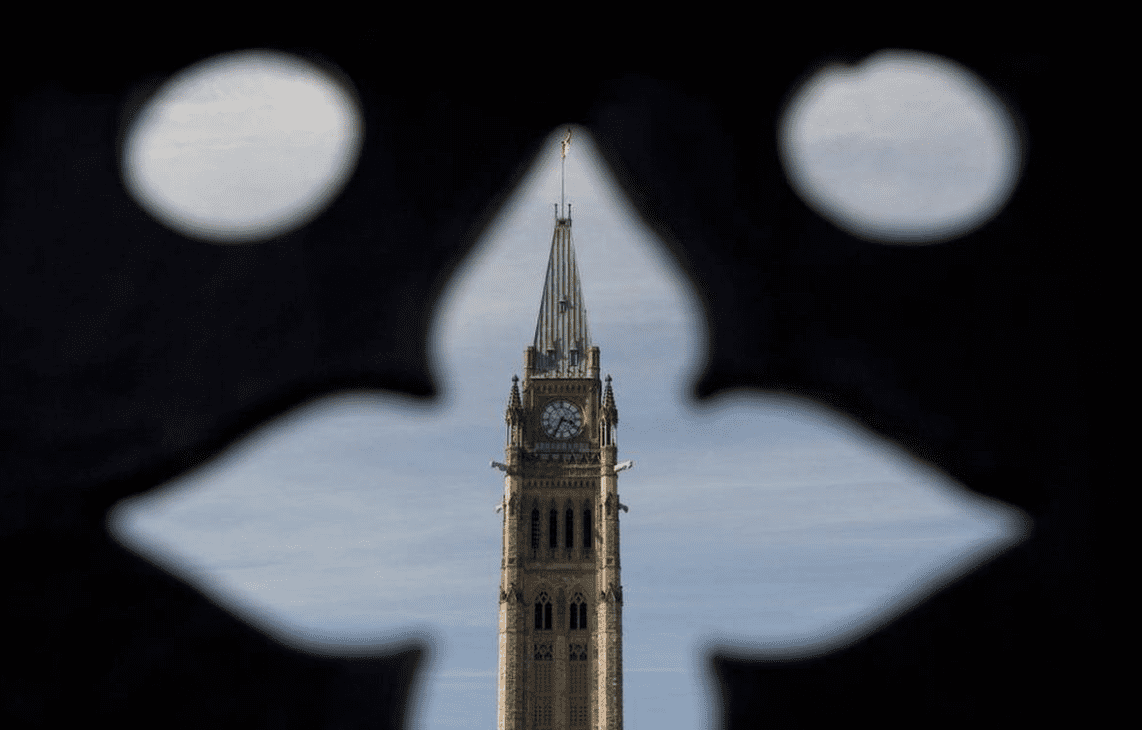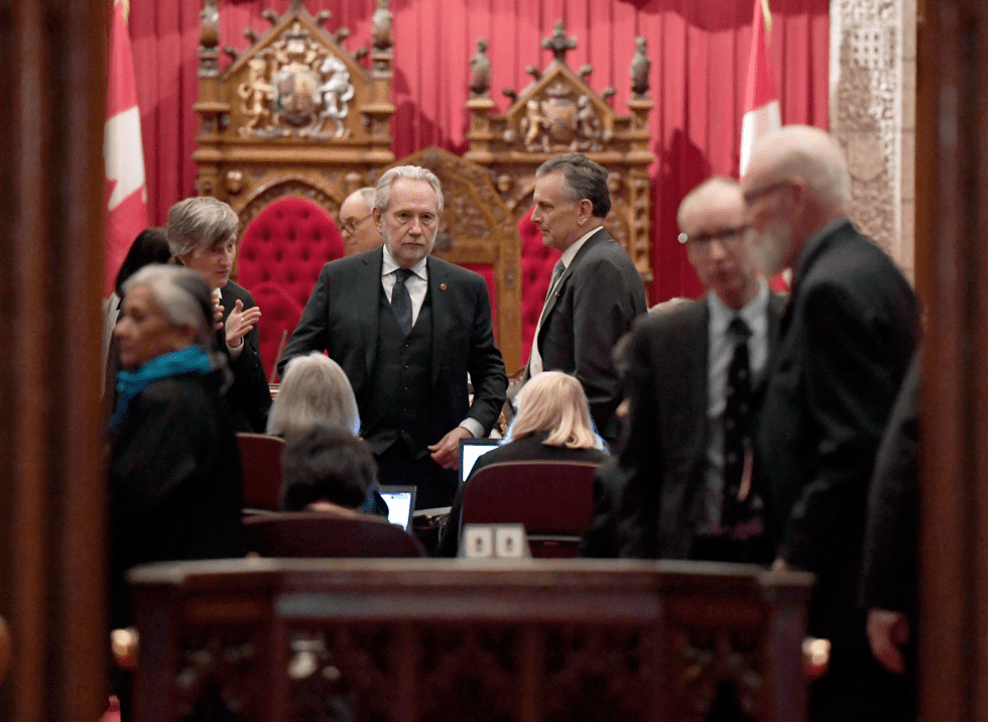By the time you read this, we may have moved on to a completely different iteration of the ridiculous game our politics has become, where two violently opposed mirror-image camps just itching to own one another get into a furious scrap over some double standard, and a mostly ineffective group of centrist baby-sitters take to their consensus media mountaintops to lecture us once again on the pitfalls of partisanship.
However, at this moment, when the Globe and Mail is so transparently and so perfunctorily pretending that they are the unbiased arbiters of what is partisan while primarily singling out the right for their transgressions and going easy on the left for theirs, it feels particularly necessary to rebut the suggestion that the opposite of partisanship could, or should, exist in the current climate, over which the Globe presides.
To begin with, who is equal to the task of defining this nebulous, ineffable "non-partisanship"? Is it anything like "non-ideology", that fair and impeccably level alchemical golden mean upon which Canada is supposedly built?
Certainly not the Globe, who proclaims that our political system has not dealt with the sort of "partisan flashpoints" posed by the turmoil south of the border in "generations". Um, hello? The recession of the 1990's? 9/11 and its aftermath, including Afghanistan? The 2008 financial collapse?
Is the Globe actually capable of deluding itself (and its readers?) into thinking Canadians dealt with these challenges in a completely "non-partisan" manner? I suppose so, because despite the presence of a Conservative government in Ottawa during some of those rough spots, the Liberal consensus carried the day each time. "Non-partisan" is just another code-word for "don't rock the Liberal boat."
But even as I draw that conclusion I am aware that I can speak only for my own tribe, with the full knowledge that on Team NDP/Liberal, they are looking at the Globe's maunderings and drawing an equal and opposite conclusion while completely rejecting mine as bad-faith hackery, to the point that they will insist that the Liberals are actually playing for my team, and that "non-partisan" to them means "white supremacy".
That's how screwed we are the left and the right can agree that "non-partisan" is code for some other nefarious thing, but damned if they can agree on what that evil thing is!
To resolve this impasse, then, let us look to the Liberals, who stake a claim over "non-partisanship" the same way they lay claim to everything else. And what are they up to? Claiming backbench Conservative MP's are sabotaging NAFTA? Asserting immigrants are better job creators than Canadian-born people? If these weren't Liberals, I'd swear they were being partisan and divisive!
Well, shall we look southward then, to those avatars of American liberalism to solve our problems for us? That's always worked before. But alas, liberal America is currently engaged in another civil war over the online history of Sarah Jeong, and we are seeing real-live publications engage in spin where not only is Ms. Jeong's display of antagonism towards white people not controversial, but it's defended using the exact same language these people decry when used by white people. It's just a joke! Calm down, honey! Why are you getting so upset?
It would appear that I have no choice but to conclude that my partisan filter matches up with reality, as much as I would like to hope otherwise. Once again I, along with the rest of the citizenry, have been confronted with another false choice, where partisanship and "non-partisanship" lead to the same result, and to be a bit more partisan that the very term is being used by centrists to justify their own left-wing bias, on the ground that they have less than absolute control of all aspects of the discourse, and that is intolerable to them. The presence of a dissenting opinion becomes a threat to national unity, something that we are told will strengthen Vladimir Putin! and contribute to "tribalism"! and strengthens the alt-right!
It is crazy-making. And when conservatives behave in a crazy fashion or, even slightly partisan the entirety of the opinion-making Consensus rises up violently in response. No wonder, then, that even in "non-partisan" Canada, the conservatives do rise to meet them.
Photo Credit: The Globe & Mail
Written by Josh Lieblein








